15 Compelling Chilean Books in Translation
Chile: the “land of poets.” The country has produced two stunning Nobel laureates (both poets) and has a rich and exciting literary tradition.
Many of Chile’s most well-known writers of modern times wrote their works outside of Chile, due to a long period of self-imposed “exiles” amidst the repression and danger under dictator Augusto Pinochet. And so, quite a few of the books on this list deal with Chile under that dictatorship, its impact, and its lingering trauma. Not all the books or stories take place in Chile itself, as many of these writers dealt with the experience of being an expat in other countries, still representing their home but far from its borders.
There are some names that most of you will already know, and so I’ve skipped them in my main list — but don’t worry, I still recommend you go read The Savage Detectives or 2666 by Roberto Bolaño, and The House of the Spirits by Isabel Allende, and Twenty Love Poems and a Song of Despair by Pablo Neruda.
With my list, I’d rather introduce you to new faces, new authors you may not know are there for the taking. And hopefully by picking up more Chilean literature in translation, we’ll encourage translations of more writers, like Daniela Catrileo or Arelis Uribe, whose works I’m quite set on reading.
So please — take this list to your local bookstore or your local library. Start reading. Show that we want translated literature. That way, we’ll get more and more and more of it. And finally, I encourage you to start noticing who is translating all your favorites, and giving them the accolades and mentions they deserve (hi, Megan McDowell, and thank you!)
Please note that while I took great care to list content warnings where I could, things can fall through the cracks. Please do additional research on the recommended titles if needed.
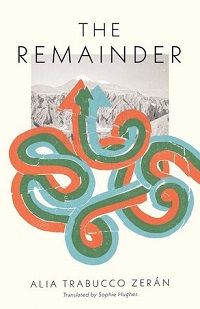
The Remainder by Alia Trabucco Zerán, translated by Sophie Hughes
Felipe and Iquela live in the aftermath of Chile’s dictatorship, burdened with their parents’ trauma — and desperate to shake it off. Felipe is obsessed with numbers, possessed with a fanatical desperation to make them balance, while Iquela and her childhood crush Paloma are trapped in the grip of their mothers’ stories of militant resistance.
When Paloma, Iquela’s childhood friend (and crush) discovers that her mother’s body has been lost in transit, the three of them set out to try and find it. The result is a compelling book about pain, history, and generational trauma.
Content warnings for animal cruelty, self-harm, reckless drug use.
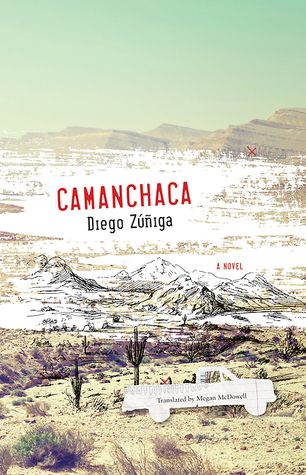
Camanchaca by Diego Zúñiga, translated by Megan McDowell
In this steady, sad book, we watch a young man coming of age as he and his father drive across the Atacama Desert. The book is written in a way that scatters out the story, exploring his relationship with his mother, with poverty, with Santiago, with his father’s new wife and new son. The book is just 128 pages, but it gives you everything you need between the lines. In small moments of staying silent, of trying and failing to communicate, of observing those around him, the protagonist starts to grow up in a way that is deeply sad. There are just so many things that he can’t talk about, and they weigh on him.
Content warnings for family death.
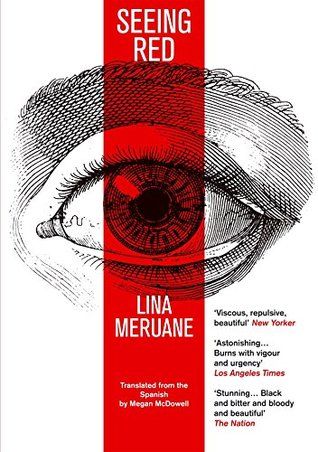
Seeing Red by Lina Meruane, translated by Megan McDowell
Protagonist Lina is at a party when the blood vessels in her eye burst. She’s been sick for a long time, and now she’s lost her sight, becoming dependent on her relatively new boyfriend — and then on her doctor parents on her brief visit home to Chile. The book is based on Meruane’s own health issues. People who have dealt with medical fear, dismissal, and trauma will recognize the well-written panic and horror she experiences as her life transforms to accommodate what might be a permanent loss of sight. Her boyfriend doesn’t always take her seriously. Her friends don’t know what to say, so tend to flee. Her family seems to think she can’t make decisions for herself anymore. It’s a really great, stream-of-consciousness-like novel about how the fear and loss of control begin to get to her.
Content warnings for the r-slur, ableism, medical dismissal/trauma, chronic illness, fatphobia, suicidal ideation, transphobia/misgendering.
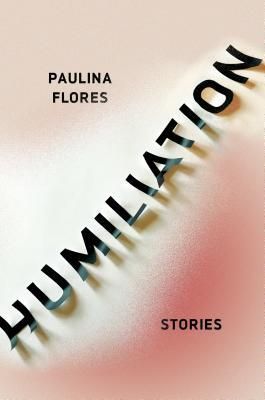
Humiliation: Stories by Paulina Flores, translated by Megan McDowell
In these stories, a struggling father brings his daughters along with him to his job interviews; a group of teenage boys try to steal musical instruments from a church; a woman moves back in with her mother after a bad break-up. People are caught up in harrowing, humiliating situations, and Flores pulls no punches in showing life’s mess. These stories are searing, dark, and sometimes bleak, but really try to get at the tough corners of life, painful and embarrassing. And the tales rarely go where the reader expects them to.
Content warnings for racism, sexual violence, pedophilia, suicide attempt, abandonment, child abuse.
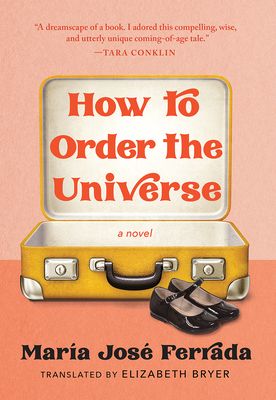
How to Order the Universe by María José Ferrada, translated by Elizabeth Bryer
How to Order the Universe is a short and delicate novel that tells the story in fable-like prose of 7-year-old M, a young girl obsessed with her father D’s trade as a traveling salesman, and determined to put her own talents to the test (but only, of course, if she gets a commission). This tale of a young girl and her childhood belief system — and the photographer named E who threatens, in Pinochet-era Chile, to tear it down — is an endearing yet disillusioning story of growing up and trying to make the world make sense. It’s a nostalgic book about a changing world and the relationship between a girl and her father. Plus, it’s a very short read.
Content warnings for death and suicidal thoughts.
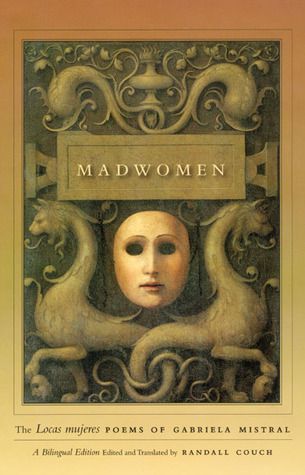
Madwomen: The “Locas Mujeres” Poems of Gabriela Mistral, translated by Randall Couch
Gabriela Mistral is criminally under-appreciated. Way too few readers know of the first Latin American Nobel laureate, a Chilean author turned expat who lived in the U.S., Mexico, Lisbon, Italy, and more, working in education and writing brilliant poetry. This book, which collects her final poems, will enchant fans of modern feminist poetry. She writes songs of Electra, of Cassandra, of women lost, isolated, trapped, longing, wandering, alone — it’s a collection about women whose voices are too often lost in a patriarchal world. This edition has a great introduction and presents Mistral’s poems bilingually, side by side in Spanish and English.
Content warnings for themes of suicide, sexual assault.
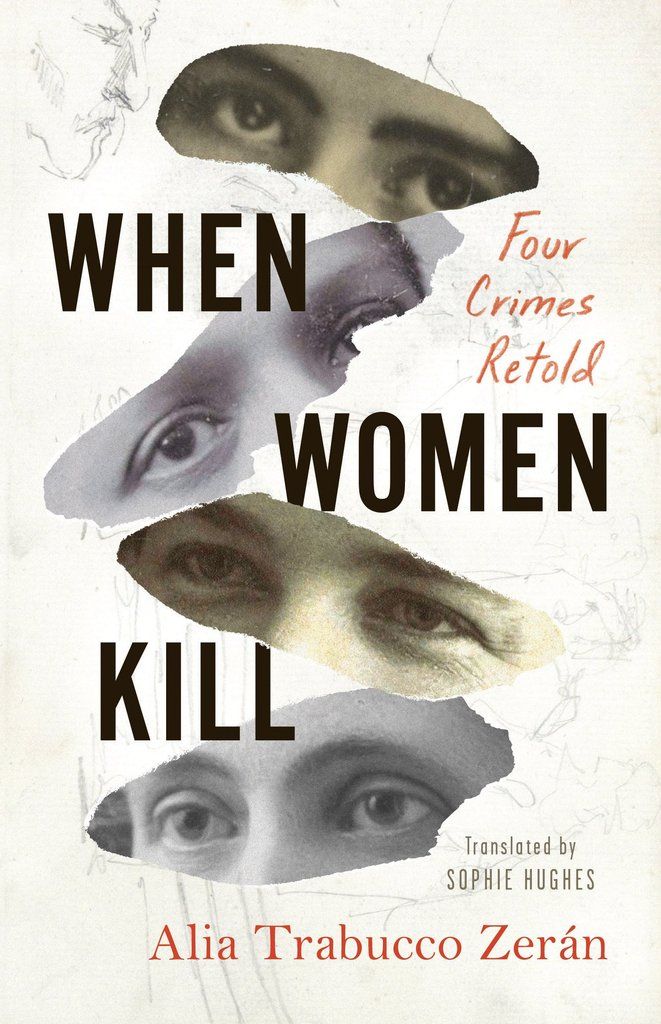
When Women Kill: Four Crimes Retold by Alia Trabucco Zerán, translated by Sophie Hughes
How does society deal with the problem of a female murderer? I know, it’s Zerán again — but this time in an entirely different light. In this nonfiction book, Zerán looks at how four women murderers in Chile’s history have been tried, judged, sensationalized, romanticized, forgotten, pardoned, etc., to look at how society’s gender biases have impacted the way we treat women criminals. It’s a fascinating must-read for all true crime fans, a book that I annotated, starred, dogeared, and just generally obsessed over.
My favorite analysis: she talks about society’s need to delegitimatize female anger, because to admit that an abused and maligned domestic worker had motive would mean admitting that there are systemic reasons she should be angry. Brilliant.
Content warnings for violence, sexual assault, classism, racism, infanticide.
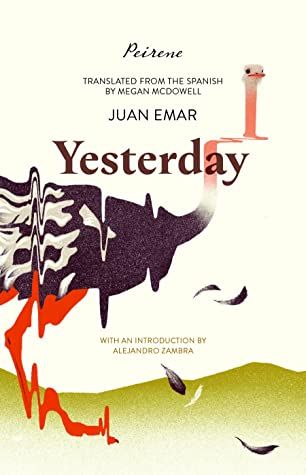
Yesterday by Juan Emar, translated by Megan McDowell
Over the course of a single day — you guessed it, yesterday — the protagonist and his wife go on an absolutely bizarre, exciting series of adventures, rushing from place to place throughout the city of San Agustin de Tango. They meet a carnivorous ostrich. They hang out in the studio of an artist who’s obsessed with all things green. It’s weird and avant-garde and trippy, and definitely not for everyone, but readers willing to just hold on and enjoy the ride will have a great time with this modern classic from Emar.
Content warnings for body horror, death, fatphobia.
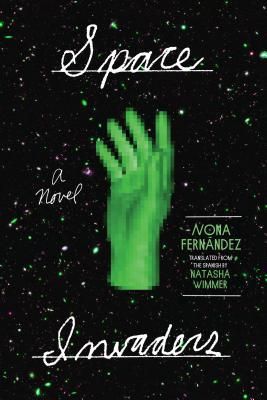
Space Invaders by Nona Fernández, translated by Natasha Wimmer
A group of adults who grew up with Estrella González Jepsen all share their wisps of dreams, visions, and memories of her. She disappeared after they all left school, and they wonder where she went, realizing her father was a ranking officer under Pinochet. When they were kids they felt the tension, but only now can they fully look back at what was happening as they grew up within a dictatorship, reexamining what they remember, looking back at the ways they handled it as kids. Fernández has written a great novella — just 88 pages! — about memory and the attempt to recover what really happened.
Content warnings for death, torture, murder.
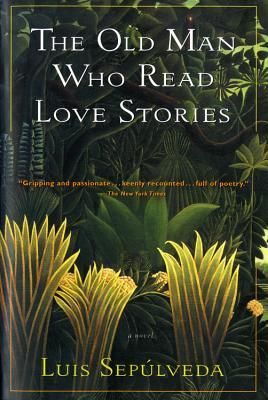
The Old Man Who Read Love Stories by Luis Sepúlveda, translated by Peter Bush
After he’s lived in the jungle for 40 years, Antonio Jose Bolivar Proano must pause his romance novel reading in order to help hunt down a man-hunting ocelot. It’s a modern classic, a book that highlights the impact of Western exploitation on the wilderness and that is a poignant look at solitude, nature, and exile.
Sepúlveda is an author to know, with an eventful life. He was an ardent and outspoken leader against Pincochet, was a long-time environmental activist, and passed away of COVID-19 after contracting it in March 2020. This is his best-known and most beloved novel.
Content warnings for animal death, body shaming, racial slurs, death, homophobia, sexism.
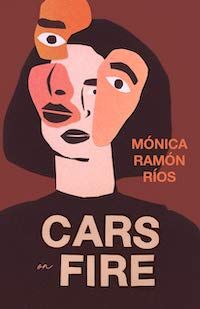
Cars on Fire: Stories by Mónica Ramón Ríos, translated by Robin Myers
A man must figure out how to leave the voice of his dead father behind despite still driving the disastrous car he bought to make him proud. A speechwriter moonlights by singing protest songs in punk venues. A Marxist cuts off her own head. In this collection of strange, eerie stories, Ríos evokes a series of unexpected deaths and strange happenings. Her writing is sensuous and weird. In one of my favorite stories, she writes a satire or fable of the falseness of a “civilizing” force. She evokes student protests, ironies, bullets, protheses, animals. The stories are mind-bending, angry, and macabre.
Content warnings for death, violence, xenophobia, police shooting, suicide, deportation.
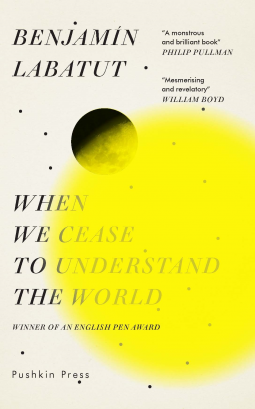
When We Cease to Understand the World by Benjamín Labatut, translated by Adrian Nathan West
An artillery officer in the German army figures out that black holes exist. The same man who discovers a nitrogen fertilizer that saves the world also develops a gas used in the concentration camps to kill millions. Two great scientists fight to come up with quantum mechanics first. In this book, Labatut writes an epic series of stories about scientific discovery that dives into wild territory, reminding us that science is scary and that the more we push at its edges, the more we’ll discover that we really do not, and perhaps can not, understand. He pushes at the areas where scientific innovation has led to horror, creating this fascinating Borgesian book.
Content warnings for death, genocide, mental illness, antisemitism, pedophilia, suicide, chronic illness.
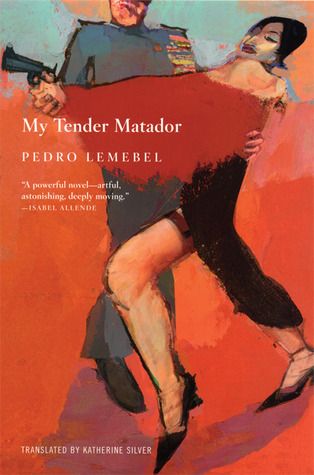
My Tender Matador by Pedro Lemebel, translated by Katherine Silver
It’s spring 1986 in Santiago, and the Queen of the corner, an older homosexual woman, develops a deep crush on handsome young Carlos, a radical who starts using her house for his meetings. The Queen knows what they’re doing, sort of, but doesn’t really want to know what the boxes all around her home are, or what she’s complicit in.
This funny, wistful novel depicts the despotic toxic masculinity of Pinochet foiled against this wildly gay old transvestite* in love. It’s so well done, and left me full of feelings (from nostalgia and longing to hope and a little sadness) in all the best ways.
Content warnings for homophobia, homophobia slurs/violence, sexual assault/harassment, racism, misgendering.
*This word, here, is appropriate because the book is depicting a queerness of a particular era and kind in which the Queen uses this term for herself.
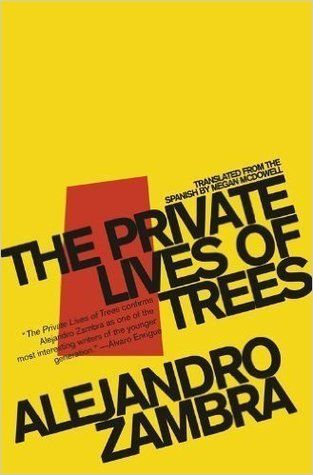
The Private Lives of Trees by Alejandro Zambra, translated by Megan McDowell
Each night, literature professor Julián makes up a story about trees to help his stepdaughter Daniela fall asleep. And afterwards, he works on his novel while waiting for his wife to come home. But tonight, he’s worried that she isn’t coming home. The whole novella (98 pages) takes place in a single night, as Julián thinks about his marriage, and wonders whether a someday grown-up Daniela will like his novel about a man and a bonsai tree. What will he do, as a father, if Verónica doesn’t come home? What would it mean to deal with heartbreak yet again? It’s sad, yet hopeful.
Want more books in translation content? I have lists for you of books in translation from Catalonia, Argentina, France, Mexico, Central Africa, Japan, Southeastern Europe, Brazil, Ukraine, Sweden, China, West Africa, and Germany. If you have recommendations or requests for future lists of books in translation, or if you want me to know about a book I missed, please let me know on Twitter!

إرسال تعليق
0 تعليقات